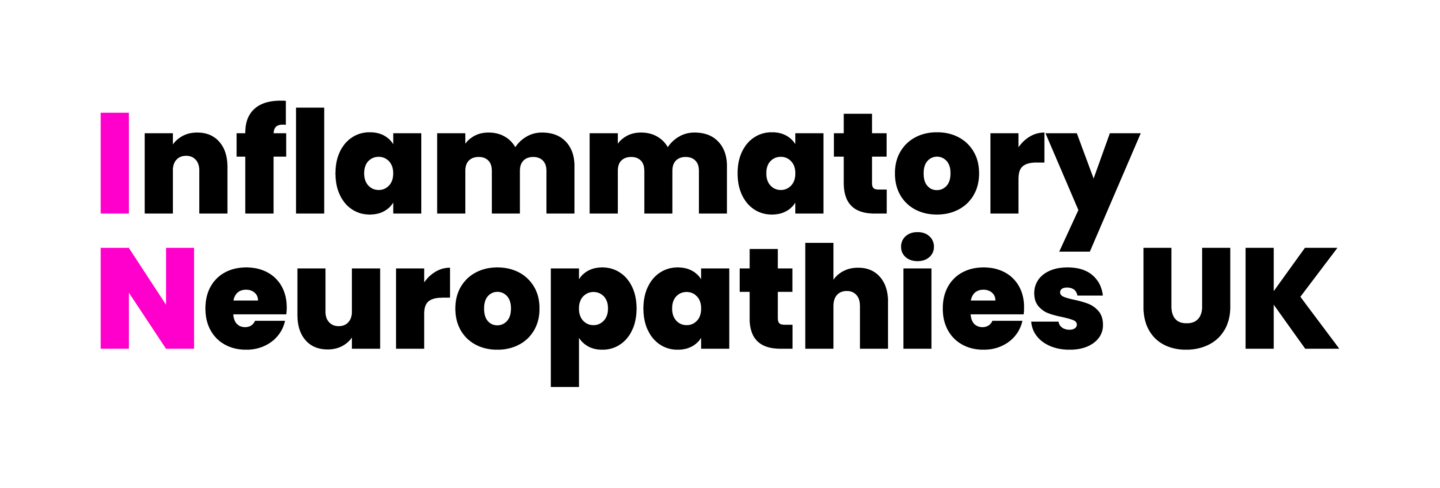Mental Health & Wellbeing, Relationships, and Carer Support
This section will provide useful links and sources to help support your mental health during CIDP. If you’re a carer or have experienced a loved one going through an illness it can also be a traumatic time, and these links may also help you.
Mental Health & Support
With all the changes in your health it is not uncommon to feel anxious or angry, and this can even be helpful to a degree in providing the mental and physical energy that is needed to anticipate and tackle problems. An acute stress reaction is recognised as being a normal part of the process of adjusting to a life change, and it can often help to talk things through with a partner or close friend. However, please seek advice and help from your GP if you are finding it difficult to cope or to sleep, or if you are feeling overwhelmed emotionally.
The impact of being severely affected by a sudden, frightening and potentially life-changing condition such as CIDP can leave people with symptoms of PTSD (post-traumatic stress disorder). It can develop immediately, or many months or even years after a traumatic event. If you are concerned about low mood, irritability, panic attacks, anxiety, flashbacks, physical sensations such as trembling or sweating, poor concentration or sleeping problems, please talk to your GP about getting some counselling.
Some other sources of support are shown below.
|
Other sources of support MENTAL HEALTH
|
|
|
5 steps to mental wellbeing |
https://www.nhs.uk/conditions/stress-anxiety-depression/improve-mental-wellbeing/ |
| Mindfulness | https://bemindful.co.uk/ |
| Post-Traumatic Stress Disorder | https://www.nhs.uk/conditions/post-traumatic-stress-disorder-ptsd/ |
|
Mental health and wellbeing |
https://www.nhs.uk/conditions/stress-anxiety-depression/ |
| MIND | http://www.mind.org.uk/ |
| Young Minds | https://youngminds.org.uk/ |
Sexual Relations & Relationship Support
CIDP and other chronic neuropathies can bring on problems in any relationship, and sexual relationships are not excluded. Dealing with a long-term illness or disability can put a great strain on a relationship, particularly when one partner is partially or totally dependent on the other. As well as coming to terms with a physical disability, the emotional upheaval can interfere with a couple’s sex life and this can be difficult to talk about. This can mean that the once close, intimate relationship can become distant and stressful for both partners. Help is available so speak to your GP or a relationship counsellor.
Other sources of relationship support
Relate: https://www.relate.org.uk/
Sexual Advice Association: https://sexualadviceassociation.co.uk/
Help For Carers
Hospital discharge can bring mixed emotions. Of course you’re glad to have your family member home, but it is quite normal to feel a bit daunted by what lies ahead, especially if you are now the main carer. Here are a few practical suggestions that can help you in your new role. Other sources of support are listed overleaf.
Ask for a needs assessment for the person you’re caring for – You need this before the council can recommend services such as equipment, home adaptations, help from a paid carer, etc
Get a carer’s assessment – This can be requested at the same time as a needs assessment, via social services at your local council
Don’t be afraid to ask for help – Ask family and friends (shopping, respite, etc), and contact carers’ organisations or Citizens Advice for benefits advice and other support
Look after yourself – Eat a healthy diet, maintain a regular sleep pattern and make time for exercise, preferably in the fresh air or at your local gym or pool, away from the care setting
Remember to rest – Put some activities on hold. Take some time to yourself by arranging respite care from a friend or relative or through social services
Recognise limitations – Both those of the person you’re caring for and your own. Let them try to do things for themselves if they are able, but bear in mind their safety and yours.
Look after your mental health – Talk to each other about your experiences and frustrations during illness and recovery. Talk to your GP if either of you is struggling
Be mindful of risks – Be aware of temperature (cooker, iron, hot bath water, hot drinks), risk of falls due to poor balance, and dropping or spilling things due to weakness
Diet & exercise – If appetite and taste are affected, ask about vitamin supplements to help maintain dietary needs. Ask the community physio about exercises to do between visits
Don’t lose sight of your relationship – Whatever your relationship is to the person you’re caring for, make time for it. Do things together that you both enjoy and that feel ‘normal’
Get in touch with GAIN – We provide information and support, organise peer support via phone or video link, virtual group chats, and run an active and supportive Facebook group
Other sources of support
| NHS advice | https://www.nhs.uk/conditions/social-care-and-support-guide/support-and-benefits-for-carers/ |
| Carers UK | https://www.carersuk.org/ |
| Carers Scotland | https://www.carersuk.org/scotland |
| Carers Wales | https://www.carersuk.org/wales |
| Carers Northern Ireland | https://www.carersuk.org/northernireland |
| Family Carers Ireland | https://familycarers.ie/ |
| Carers Trust | https://carers.org/ |
| Help for young carers | https://youngminds.org.uk/find-help/looking-after-yourself/young-carers/ |
| Citizens Advice UK | https://www.citizensadvice.org.uk/ |
| Citizens Information RoI | https://www.citizensinformation.ie/en/ |
|
Find your local
social services |
England
https://www.nhs.uk/service-search/other-services/
Scotland https://www.mygov.scot/find-your-local-council/
Wales https://111.wales.nhs.uk/localservices/
Northern Ireland http://online.hscni.net/social-services/
Republic of Ireland https://www.hse.ie/eng/services/list/4/ |
Welcome to our CIDP Information Hub.
Here we breakdown what is happening to you or a loved in simple but proper terms. Our information is sourced from our Medical Advisory Board, medical texts, and recognised support providers.
If you have any questions after reading this that you feel haven’t been answered. Please get in touch with us, we will strive to point you in the right direction.
What is CIDP?
We discuss the basics of GBS – what it is, the symptoms, and information on Acute onset CIDP (A-CIDP)
How is CIDP Treated?
We cover Immunoglobulin, Plasma Exchange, Corticosteroids, and is there a “cure”?
What Family & Friends Can Do To Help if Someone is in Hospital?
We cover communication, Mental Stimulation, Financial Worries, Comfort, Coming off a Ventilator, and Staying Positive
What is the advice surrounding vaccinations and CIDP?
Containing information on vaccinations via our Medical Advisory Board and sourced journals.
Mental Health & Wellbeing, Relationships, and Carer Support
Contains information on how to care for your mental health. We also discuss relationships, before a section on looking after yourself as a carer
What Are The Causes of CIDP?
How will I get diagnosed by my Doctor, Nerve Tests, and Lumbar Punctures
Returning to Work
When someone is ready to return to work after an absence, the employer should have a procedure they follow.
You can check your workplace’s absence policy for this. Your workplace might have a policy for meeting with employees after absences.











